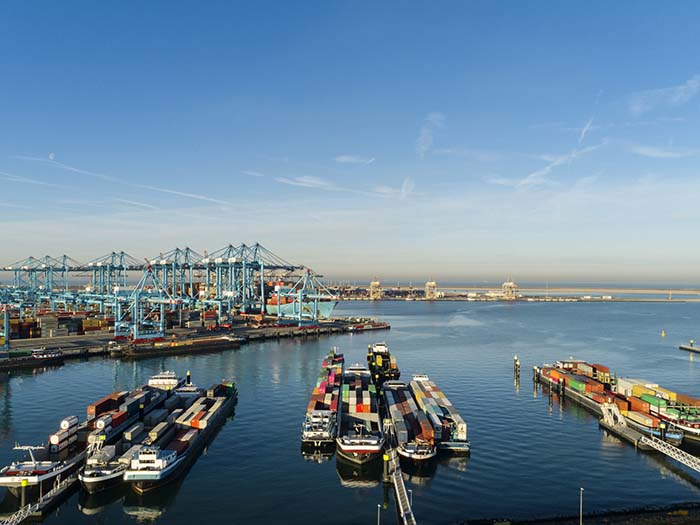Global Shipping Losses Hit Record Low Despite Rising Geopolitical Tensions

Global shipping total losses reached a record low of 27 vessels in 2024, down 20% from the previous year and marking a 75% decline over the past decade, despite rising geopolitical tensions and cargo theft challenges, according to Allianz Commercial’s annual Safety and Shipping Review 2025.
The report noted that the shipping industry has made strides in safety over recent decades. During the 1990s, more than 200 vessels were lost annually, but this figure has steadily declined to just 27 total losses in 2024 for vessels over 100 gross tonnage. This represents a 75% reduction compared to the 105 vessels lost in 2015.
Despite these improvements, clear regional patterns emerge in shipping incidents, the report found. The South China, Indochina, Indonesia and Philippines region remains the primary global hotspot for total losses, tied with the British Isles and the East Mediterranean and Black Sea at four total losses each in 2024. Over the past decade, the South China region has recorded 169 total losses, reflecting the high volume of shipping traffic supporting regional imports and exports.
Analysis of vessel types reveals fishing vessels accounted for nearly 40% of losses in 2024 (10 vessels), followed by cargo ships (6) and chemical/product carriers (3), according to Allianz. The leading cause of total loss across all vessel categories was foundering (sinking), accounting for nearly half of all incidents (12), while fire/explosion ranked second with seven vessels lost.
Fire incidents increased 20% year-over-year to 250 in 2024, marking a decade high, while the total number of reported shipping casualties or incidents increased approximately 10% to 3,310 globally, according to the report.
Geopolitical Tensions and Economic Pressures Create New Risk Landscape
While traditional maritime risks like fires and collisions have decreased, geopolitical tensions now pose substantial threats that could offset safety gains, the report found.
The industry faces complex challenges including attacks on shipping, vessel detentions, sanctions, and damage to critical infrastructure such as undersea cables. Reports of vessels experiencing GPS interference and jamming are increasing, and insurers have seen a clear rise in large claims related to conflicts, particularly from the Ukraine war and Middle East tensions.
Protectionist trade policies create additional uncertainty for the maritime sector, Allianz noted. China has been the primary target of the U.S. administration, with tariffs reaching as high as 145% before both countries agreed to a 90-day tariff reduction in May 2025. U.S. plans to address China’s shipping dominance could significantly impact shipyard capacity, repair costs, and shipping schedules. Last year, Chinese vessels made 14,295 port calls to 252 U.S. ports, representing 18% of all port calls, Allianz reported.
Economic pressures are driving increased costs and security concerns. Though inflation has stabilized, marine claims remain more expensive than two years ago due to elevated repair costs, steel prices up 60% in some cases, supply chain delays, limited shipyard capacity, aging fleets, and more complex machinery.
Cargo theft claims continue rising, with North America seeing a 27% increase and one EMEA database reporting daily losses averaging €1.2 million ($1.4 million), the report noted. Criminal organizations have become more sophisticated, with increasing incidents of fraudulent documentation and identity theft.
Transitioning to Alternative Fuels Requires Careful Risk Management
The shipping industry’s greenhouse gas emission targets hinge on the timely adoption of alternative fuels like liquefied natural gas, ammonia, methanol, and hydrogen. The International Maritime Organization’s strategy aims to have at least 5% (and striving for 10%) zero and near-zero emission fuels in use by 2030, but geopolitical unpredictability and uncertainty over optimal solutions may slow progress, according to Allianz.
This transition carries significant implications for the risk landscape and marine insurance policies, according to the report. Particular concerns include fire safety, specialized equipment failure, crew competency, and environmental liabilities.
Despite fewer total losses, challenges remain, the report stated. Shipowners must navigate an ever-changing regulatory framework while managing complex issues from conflicts and sanctions to decarbonization challenges. Loss prevention and risk mitigation practices must filter down to operational levels, with continued industry-wide effort required to maintain safety improvements in the face of evolving risks.
Read the full report here. &








